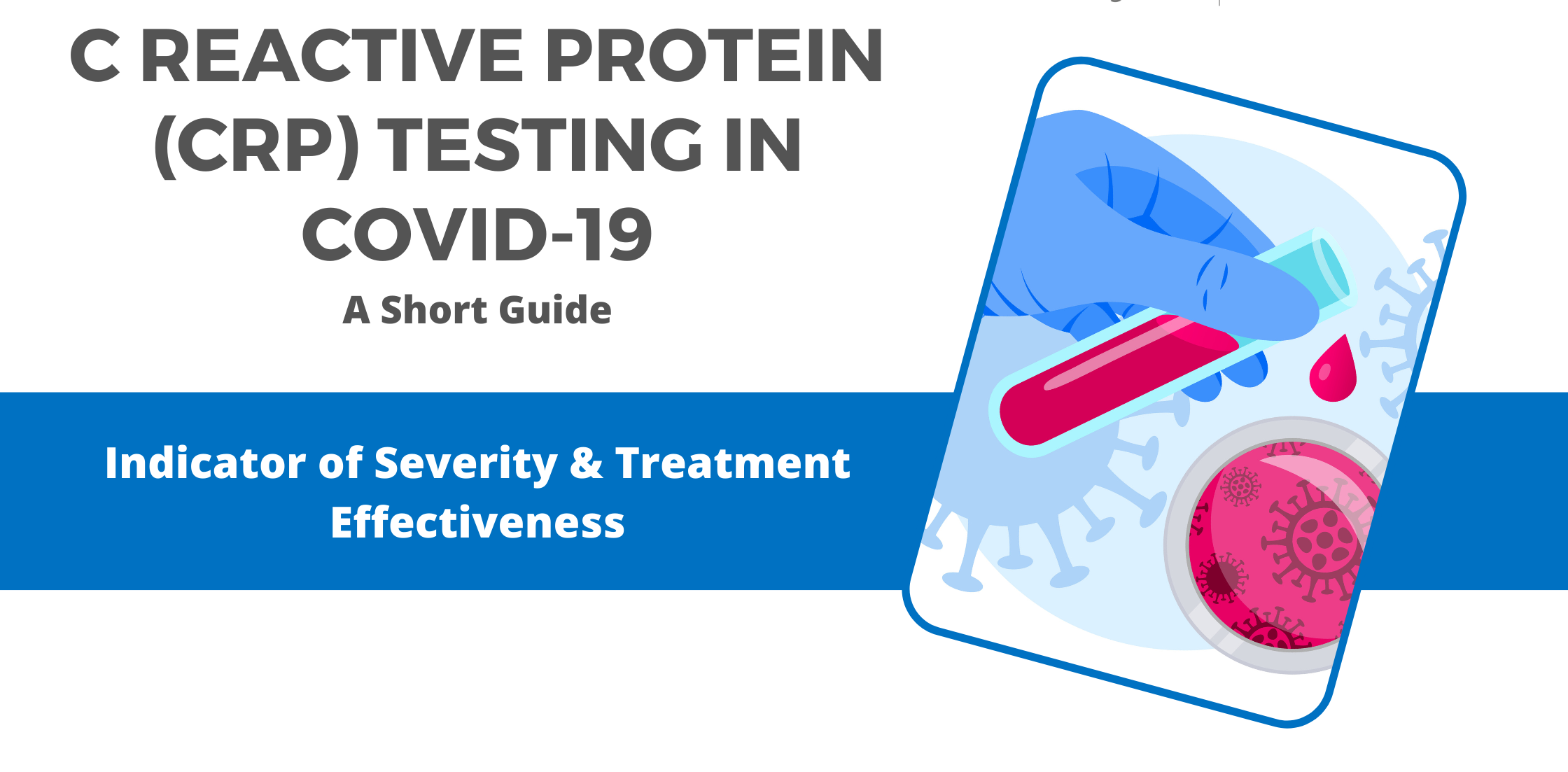The importance of CRP testing in COVID-19 monitoring.
COVID-19 has various stages of severity and progression. CRP testing in COVID-19 is a good indicator of severity. IFCC has listed it in its list of essential investigations in COVID-19
What is CRP?
CRP is a type of protein produced by the liver that serves as an early marker of infection and inflammation.
CRP tests integrate signals from a number of different proteins involved in inflammation, called cytokines, to provide physicians with a snapshot of a patient's inflammatory activity within a matter of hours.

Is rising CRP an early indicator of lung involvement in COVID-19?
In the early stage of COVID-19, CRP levels were positively correlated with lung lesions and could reflect disease severity.
Correlation of High CRP and Oxygen levels.
Furthermore, it was observed that patients with low oxygen saturation (SpO ≤ 90%) had significantly higher levels of CRP (median 76.5 mg/L) compared with patients with high oxygen saturation (SpO > 90%) (median 12.7 mg/L), indicating that more severe patients with lung damage have elevated levels of CRP.
Is CRP testing in COVID hospitalized cases important?
Higher levels of CRP indicate more severe disease course‐linked to lung injury and worse prognosis.
COVID-19 severity can be judged by performing CRP, D-Dimer,Ferritin, CBC to judge for Neutrophil:lymphocyte ratio.
What are the potential benefits of CRP testing in COVID?
CRP could be a valuable marker to anticipate the possibility of aggravation of nonsevere adult COVID-19 patients, with an optimal threshold value of 26.9 mg/L. CRP testing in COVID is an essential aspect of monitoring and treatment.
What are the effects on CRP in COVID cases?
We realized that whereas a single CRP lab value from hospital admission wasn't very practical as a predictor of who might get sicker, tracking the rate of change from Day 1 to Day 2 or 3 was a very important way to judge change in the clinical picture. The CRP levels rise above 25 mg/L. This CRP test is different from the hs-CRP test which can only measure till around 20. Be sure to ask for the regular CRP test instead.
Do steroids change the levels of CRP?
Yes, steroids lower the level of CRP in COVID treatment. In fact, CRP is an important test to monitor the progress of COVID-19 even in-home isolation. Steroids can reduce the CRP levels within 48 hours if the patient responds.
Does Tocilizumab change the CRP level?
Yes, CRP levels should be used to monitor Tocilizumab therapy. It is the first indicator of responsiveness of this medicine in COVID-19. CRP testing in COVID patients on Tocilizumab helps to understand the effectiveness since Tocilizumab levels in the blood may not be indicative of response.
Does CRP testing in covid help to guide the discharge from hospitalization or to recommend hospitalization?
Yes, A very high CRP level at the time of home isolation should put one on guard especially when there is low oxygen saturation(Low P02).
Steroids must be started in these cases after hospitalization. The CRP levels then need to be monitored daily and a trend needs to be plotted to see whether the CRP is increasing or decreasing.
Click here to book a CRP test if you have COVID-19.If you would like to know more about other COVID-19 tests click here to read our detailed blog. Stay safe!
- The importance of CRP testing in COVID-19 monitoring.
- What is CRP?
- Is rising CRP an early indicator of lung involvement in COVID-19?
- Correlation of High CRP and Oxygen levels.
- Is CRP testing in COVID hospitalized cases important?
- What are the potential benefits of CRP testing in COVID?
- What are the effects on CRP in COVID cases?
- Do steroids change the levels of CRP?
- Does Tocilizumab change the CRP level?
- Does CRP testing in covid help to guide the discharge from hospitalization or to recommend hospitalization?

